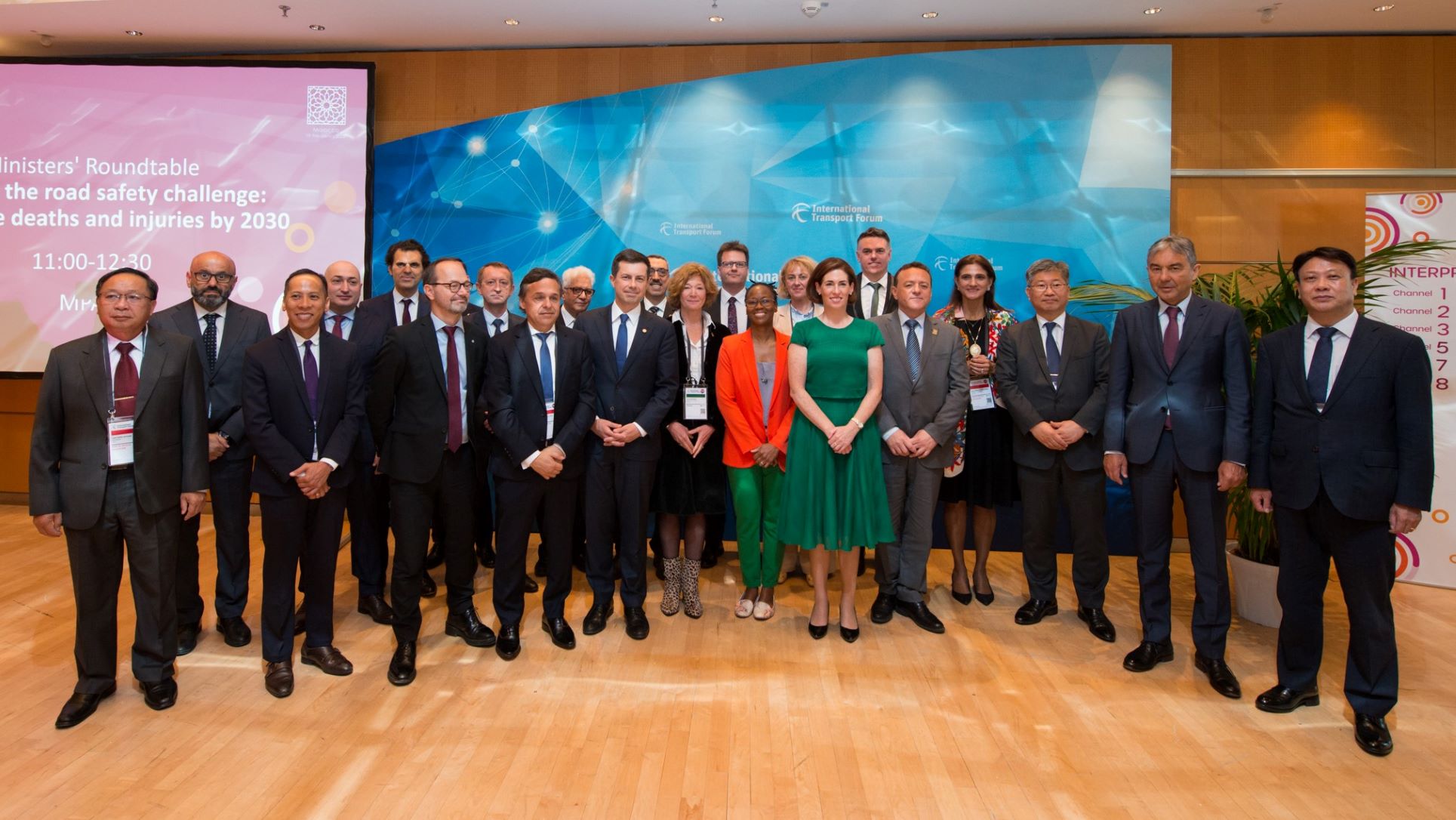
Lotte Brondum, the Alliance’s Executive DIrector was invited to speak at the Ministerial Round Table on Meeting the Road Safety Challenge: Halving the Deaths and Injuries by 2030 at the International Transport Forum Annual Summit in Leipzig on 18 May 2022. This was a closed meeting with no audience. 10 Ministers including from Argentina, Colombia, Ireland, Korea, Liechtenstein, Morocco, Norway, Poland, Sweden, and the U.S. were present, alongside other representatives from civil society, private sector and UN agencies.
The meeting was an opportunity to bring the perspectives of Alliance member NGOs to decision makers face-to-face. These were Lotte’s key points in her presentation at the Round Table:
This points to a deep lack of political will.
We asked Lotte for her perspectives on the Ministerial Round Table. This is what she told us.
“Firstly it was encouraging that 10 Ministers chose to attend the Ministerial Round Table on this important topic.
“All the Ministers in attendance talked about what their countries were doing to reduce road deaths; some specifically mentioned how their country was using the Safe System approach and some described having a people-centered perspective to road safety decision-making. It was clear that some countries were more advanced than others in how they were tackling the issue.
“It was good to hear decision makers being open about the challenges they faced to achieving the 2030 targets and being willing to learn from the experiences of one another and refreshing to hear the US returning to the global road safety community, in particular its ambitions to use learning from cities in the US that have already achieved zero fatalities and scale it up.
“Representing and amplifying NGOs’ local experience and perspectives on the global stage is one of the Alliance’s responsibilities to its members. From an NGO perspective, representing our members, an opportunity to be one-to-one with 10 Ministers is a rare thing and the opportunity to address them is very welcome. It was also encouraging to hear that the calls to action we have identified and the rights language that we have been using as NGOs, are also resonating and being used among decision makers.”